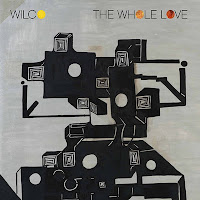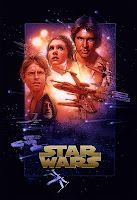 #1. Tori Amos, Night of Hunters. Tori is my favorite artist and I regard this as her best album since 1999's To Venus and Back! Not only that, it's her first album on the classical label Deutsche Grammophon (twelfth studio album in all). Tori was approached by the label to compose a twenty-first century song cycle based on classical themes. To listen to her tell the story, she responded by saying, "Can I have a drink?" She said that if she were to get it wrong, she would get it really wrong because she was messing with the masters so to speak.
#1. Tori Amos, Night of Hunters. Tori is my favorite artist and I regard this as her best album since 1999's To Venus and Back! Not only that, it's her first album on the classical label Deutsche Grammophon (twelfth studio album in all). Tori was approached by the label to compose a twenty-first century song cycle based on classical themes. To listen to her tell the story, she responded by saying, "Can I have a drink?" She said that if she were to get it wrong, she would get it really wrong because she was messing with the masters so to speak.Tori's vocals and virtuosic piano playing are accompanied by the Apollon Musagete Quartet on strings and Berlin Philharmonic clarinet soloist Andreas Ottensamer. And as with her last effort, 2009's seasonal album Midwinter Graces, she enlisted her daughter and niece to provide a few of the vocals.
Night of Hunters is a great achievement, as was the tour in support of it with the Apollon Musagete Quartet through Europe, South Africa (her first time touring there), and North America. The highlight for me was a stunning new arrangement of "Cruel." It was so daring to rework that song from her '98 album From the Choirgirl Hotel (my favorite) with the string quartet.
#2. Bright Eyes, The People's Key. Bright Eyes' eighth album and first in four years represents a departure from both the band's last album, Cassadaga, and Conor Oberst's recent side projects: "I was really burnt out on that rootsy Americana shit. So I tried to steer clear of that." Honestly, I hope he gets into that again but I also love Digital Ash in a Digital Urn, so this album did not disappoint. It certainly has a harder electric sound, with the exception of the quiet "Ladder Song," which Conor Oberst tacked on after the album was almost complete and a friend of his committed suicide. "No one knows where the ladder goes," he sings. Influenced by his interest in Rastafarianism (the Bible and eastern religion are also referenced), the most prominent theme on the album is unification of humanity.
Other 2011 releases that I've enjoyed include:
Adele, 21
Death Cab For Cutie, Codes and Keys
The Decemberists, The King is Dead
Fleet Foxes, Helplessness Blues
Indigo Girls, Beauty Queen Sister
The Kills, Blood Pressures
Paul Simon, So Beautiful or So What
Robbie Robertson, How to Become Clairvoyant
Stevie Nicks, In Your Dreams
Vanessa Carlton, Rabbits on the Run
Wilco, The Whole Love
Concerts I attended this year:
Jan. 2nd: Sarah McLachlan, Capitol Center for the Arts, Concord, NH
Jan. 8th: Vienna Teng, The Center for the Arts, Natick, MA
Mar. 11th: Bright Eyes, State Theatre, Portland, ME
Mar. 13th: Shawn Colvin, Chandler Center for the Arts, Randolph, VT
Apr. 1st: Sara Bareilles, State Theatre, Portland, ME
June 24th-25th: Wilco's Solid Sound festival, Mass MoCA, North Adams, MA
July 28th: Bright Eyes, Meadowbrook U.S. Cellular Pavilion, Gilford, NH
Aug. 1st: Death Cab For Cutie, Bank of America Pavilion, Boston, MA
Aug. 30th: Sara Bareilles, Bank of America Pavilion, Boston, MA
Sept. 9th: The National, Bank of America Pavilion, Boston, MA
Sept. 20th: Wilco, Wang Theatre, Boston, MA
Oct. 22nd: Indigo Girls, Keefe Auditorium, Nashua, NH
Nov. 2nd: Brandi Carlile, Calvin Theatre, Northampton, MA
Dec. 2nd: Tori Amos, Beacon Theatre, New York, NY
Dec. 6th: Tori Amos, Orpheum Theatre, Boston, MA









